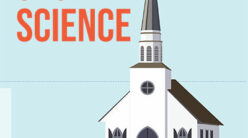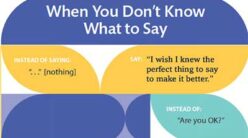Okay, time for a gut check.
Set down this magazine (just for a minute), and think. Be honest with yourself. Clear-eyed and candid.
What’s your relationship with money?
Do you balance your checkbook—or checkbook app—with fear and trembling? Do you agonize over every last penny? Do you wake up in the wee hours wondering how you’ll manage the latest car repair, hospital bill, or kids’ sports fees? Do you try very hard not to think about it at all?
Most of us closet finances as a separate, typically secret, category of our lives. But the truth is that money touches everything. Dollars and cents intersect with the choices we make, our relationships, where we live and in what kind of accommodation, our status in society, and, ultimately, our physical and mental health.
“Nine in 10 Americans agree that nothing makes them happier or more confident in life than having their finances in order,” according to a recent study called “Money: The Leading Source of Happiness . . . and Stress” by Northwestern Mutual.
When things are good, or at least status quo, we struggle with how to balance the need, and desire, for money with the realities of our lives. How to keep things in perspective. How to appreciate money for its usefulness without it unduly controlling us. And then there are times when it does control us—when the loss of a job or an unexpected expense throws us into a tailspin, and we simply feel helpless.
Research shows finances are a leading cause of stress among Americans of all socioeconomic statuses, and chronic stress has been shown to have a negative impact on health.
There is a startling 14-year gap between life expectancy of the richest American men and the poorest, according to a recent MIT study. Additionally, while the life expectancy for those in the top five percent of income earners has, over the past decade and a half, risen by more than two years, for those in the bottom five percent, life expectancy has scarcely changed at all.
When asked in the Northwestern Mutual survey how finances rank when it comes to life’s stressors, finances took uncontested first place. Forty-four percent of respondents voted finances as the leading source of stress in their lives. Just 25 percent chose personal relationships, and 18 percent voted job or career as top causes of stress.
Maggie Baker, Ph.D., a financial therapist who practices in the suburbs of Philadelphia, says she often observes the toll finances take on her clients. One man struggled with deep depression as his business declined, affecting his ability to work.
Other clients “get colds more easily,” Baker says. “If they have a chronic condition like diabetes or a skin disorder or an autoimmune reaction under the stress of financial difficulty, all of these conditions can get aggravated.” Any resulting medical care can exacerbate the financial problems.
“Money often costs too much,” said Ralph Waldo Emerson.
He was more right than he knew.
A wise person should have money in their head, but not in their heart,” said the seventeenth-century theologian Jonathan Swift.
If it only were so easy.
In a study of more than 1,000 New Zealanders, researchers from Duke University found a correlation between lower credit scores and the risk of heart disease. The researchers concluded that the same precursors to financial trouble also served as risk factors for physical health.
“Tracing human capital factors back to their childhood antecedents revealed that the characteristic attitudes, behaviors, and competencies children develop in their first decade of life account for a significant portion of the link between credit scores and cardiovascular disease risk at midlife,” the researchers wrote.
Another study of arthritis patients showed those undergoing financial strain were more likely to report “psychological distress, poor self-rated physical health, decreased self-liking and self-satisfaction, conflict within families, and propensity for marital breakup.”
The interaction between physical and financial health goes both ways. Poor health habits can impact job performance and productivity, straining personal finances, not to mention the economy as a whole.
For example, a study by the Rand Corporation showed Americans’ poor sleep habits cost the U.S. economy up to $411 billion per year. Workers lost an estimated 1.2 million working days per year as a result. That counts both physical absenteeism and so-called “presenteeism,” in which employees’ lack of sleep compromises their performance at work.
Another study of more than 600 college students determined significant connections between good financial practices and other gauges of health. In one finding, students who simply lived by a budget experienced higher levels of concentration, usefulness, decision-making, and happiness compared to their peers. And significant unsecured or short-term debt has been linked to health problems, including depression, suicide, psychological disorders, and drinking and drug use.
Conversely, addressing financial difficulties, even incrementally—i.e., winning the lottery not required—can help improve health outcomes.
In one study, people who made a decision to contribute to their 401(k) retirement plan experienced improvement in abnormal blood test results 27 percent more often than those who didn’t contribute. And women living in low- to middle-income countries who participate in microfinance programs experience reductions in infant mortality, sexual health problems, and violence.
That financial matters interconnect with other aspects of our lives should not be surprising, says Baker. However, efforts to address financial troubles often happen in a vacuum. Financial advisors and credit counselors focus strictly on money management, while counselors and health providers serve other areas of physical and mental health.
It was her own struggles with losing significant investments in the financial crash of 2000 that led Baker to think about money on more wholistic terms. This ultimately led her to the field of financial therapy, which combines best practices in financial planning with psychological counseling and behavior change therapy to help people adjust the fundamental attitudes and practices that create dysfunctional money-handling patterns.
Growing up, Baker’s family had lost its family wealth “through carelessness,” something she determined would never happen to her. When the recession shattered all her careful planning, Baker went into depression for a year and a half. She came to realize her childhood experience had caused her to set up unrealistic expectations regarding money and her ability to control it.
“It’s in childhood that you absorb attitudes and emotions toward money from your family,” she says. “Then there are peers and the culture you’re growing up with. By the time you’re a young adult, you form certain ways of behaving with money.”
Baker herself worked through the process of uncovering and coping with her own mind-set and resulting behaviors by writing a book. Then she determined to help others going through the same experience.
“I’m pretty savvy about my feelings, and if it rocked me, it must be rocking a lot of other people too,” she says.
Money is still a topic most people keep close to the vest.
“It’s easy to avoid being honest about money,” Baker says. Credit cards to help postpone the inevitable, combined with the shame of financial struggle, means the first hurdle is simply admitting the problem.
“It usually takes a crisis to bring enough attention to do something about it,” she says. “And the first thing I do is to reassure clients that they’re not alone. This is a general problem for people—the shame in being out of control with money or not being able to keep up. That’s kind of the hidden truth that nobody wants to talk about.”
Often people’s attitudes toward money—either living in denial, believing they will never have enough, or simply giving up—stand in the way of taking steps toward financial health, she says.
How is financial health defined? Here’s one version: “The dynamic relationship of one’s financial and economic resources as they are applied to or impact the state of physical, mental, and social well-being,” according to the Financial Health Institute (FHI), a Colorado-based organization that provides education to service providers and individuals focused on improving financial well-being.
“One of the biggest challenges we face is a belief that people ‘just need to learn how to budget,’” said Shawn Young, founder and CEO of FHI, in an interview with Orapin Marketing and Public Relations. “The problem is oversimplified! Learning how to budget is one small piece in a much larger behavioral puzzle.”
The first thing Baker does when working with clients is to ask them to envision money as a person.
“Is it a big fat man with a top hat with money coming out of his pockets? Is it a beautiful woman with arms open to the world? If I imagine money to be a slick, cunning man with a dark suit and a dark tie, I’m really saying, ‘Money, why is it that you’re always going away from me and going into someone else’s pocket?’” Baker says. “It’s getting people to see that they do have a relationship with money, and they’re self-sabotaging.”
After clients take a few weeks to track their actual spending, she asks them to evaluate their habits against the standard to which they hold the rest of their life. Often, the things we think most important are not reflected in our bank statements, she says.
“What do you value most? Education? Recreation? Health? Generosity to family and friends?” she says. “How much of your spending is an extension of the values you espouse?”
This disconnect creates a barrier to living healthfully, physically, and mentally—spiritually too, Baker says.
“Jesus was made powerful by the level of authenticity He lived and the truth that He spoke,” she says. Failure to honestly examine and deal with the financial aspect of life inhibits living in an authentic, balanced, spiritually-centered way.
“I think people can live into their values when they’re free of that kind of a burden, and they’re being honest with themselves,” Baker says.
Larisa Brass, M.P.H., writes from Tennessee.






